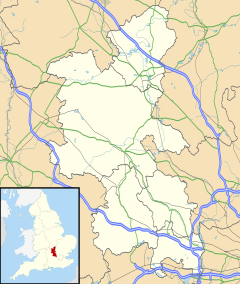New Bradwell
| New Bradwell | |
|---|---|
 Grand Union Canal as it passes between Stonebridge (in the distance) and New Bradwell |
|
| New Bradwell shown within Buckinghamshire | |
| Population | 3,109 (2011 Census) |
| OS grid reference | SP830414 |
| Civil parish |
|
| Unitary authority | |
| Ceremonial county | |
| Region | |
| Country | England |
| Sovereign state | United Kingdom |
| Post town | MILTON KEYNES |
| Postcode district | MK13 |
| Dialling code | 01908 |
| Police | Thames Valley |
| Fire | Buckinghamshire |
| Ambulance | South Central |
| EU Parliament | South East England |
| UK Parliament | |
New Bradwell is (mainly) an Edwardian era village, modern district and civil parish that is now part of Milton Keynes (ceremonial county of Buckinghamshire), on its northern edge. Together with Wolverton (on the other side of the West Coast Main Line), it was built primarily to house the workers on the Wolverton railway works.
The original village of Bradwell lies south of New Bradwell.
New Bradwell is roughly 150 years old. Exact dates are hard to figure, as buildings such as mill houses and farm houses existed on the site of what is now the village of New Bradwell, long before then. Around 1851 the area was little more than a hamlet, with 381 inhabitants and a local industry of stone quarrying and lime kilns. The first purpose built houses were constructed in 1854 – 1856 as dwellings for workers in the nearby Wolverton works, by 1861 the village had 1,658 inhabitants and over 4,000 by 1906.
Perhaps the most significant date was the expansion of the parish of Stantonbury on 16 July 1857. The old parish of Stanton Barry, or Stantonbury, contained but 750 acres (3.0 km2), and about a dozen scattered houses. By an Order in Council, dated 16 July 1857, a new parish was formed by adding to the old one the hamlet of New Bradwell. The area of the newly formed parish was 904 acres (3.66 km2). There was a ceremony of laying the foundations for the Church of St. James and other buildings such as the church schoolhouse on Monday 24 May 1858, which may mark the very foundations of the village of New Bradwell as an entity in its own right. The church of St. James was completed in 1860.
Originally this new village was called Stantonbury after the name of the parish. Buses within living memory still had the name Stantonbury on them when they terminated in the village. The change of name seems fairly recent. From records of house deeds, the change appears to have happened in 1921. A record of deed for a house in 1920 records a property in King Edwards Street being in Stantonbury, while the following year another property in the same street is listed as being in New Bradwell. Considering how accurate such legal documents have to be, this is pretty conclusive proof that the change of name was made official at this time, but definitive research would need to be conducted to establish this as fact.
...
Wikipedia

